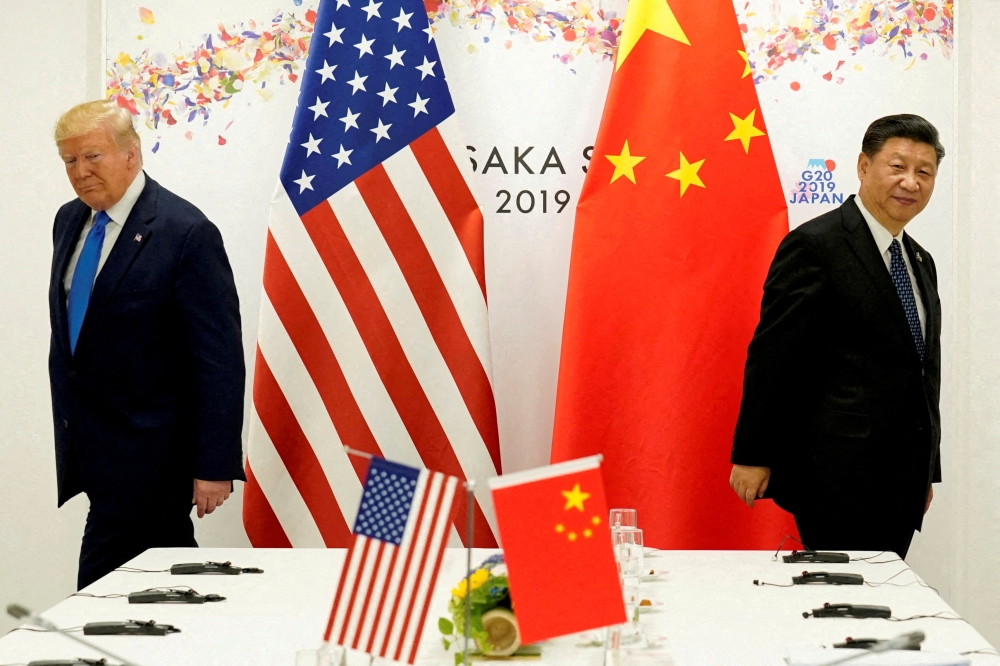- Malaysia is opting for direct talks with the US on tariffs, avoiding a WTO challenge despite disputed claims.
- Rising US tariffs, notably on China, signal a potential disregard for global trade rules and increased trade war risks.
- However, analysts caution Malaysia’s diplomatic approach may lead to unbalanced demands from the US.
KUALA LUMPUR, April 10 — China filed a formal complaint with the World Trade Organization (WTO) just two days after US President Donald Trump announced sweeping “reciprocal” tariffs on exports from 180 countries, alleging these violate WTO rules.
So far, China is the only country to have sought intervention from the international trade body. Australia, despite saying it may consider similar action, has yet to file a formal complaint. Trump imposed a 10 per cent tariff on Australian goods.
The rest of the countries on Trump’s “Liberation Day” list, including Malaysia, have not pursued WTO complaints, preferring bilateral diplomacy instead.
Some nations, like the European Union and Vietnam, have offered to reduce tariffs on US imports to zero, even where duties are already low.
The WTO’s role in international trade
China and the US, two of the world’s largest economies, are members of the international trade body established to regulate and facilitate global trade. Its framework includes various agreements covering goods, services, and intellectual property.
As members, they are legally bound by WTO rules, and the body acts as an arbiter in trade disputes between members.
This usually involves allegations of unfair trade practices where one country gains a competitive advantage through the use of “trade barriers.”
These trade barriers can be direct, such as high tariffs, or indirect, like quotas or excessive regulations that make it difficult for exporters to sell goods or services in the destination country.
One of the three broad treaties the WTO oversees is the General Agreement on Tariffs and Trade (GATT). The primary obligation under GATT is the “most-favoured nation” (MFN) rule: members must charge all other members the same tariff unless they have a free-trade agreement (FTA) with them.
This means they cannot unilaterally raise tariffs against one member without raising them for others (unless an FTA applies). This principle underpins what economists commonly refer to as “trading on WTO terms.”
A complementary obligation is that members cannot exceed the tariff rates committed to in their membership schedules. China argued that the Trump administration violated these obligations by unilaterally raising rates.

US President Donald Trump attends a bilateral meeting with China’s President Xi Jinping during the G20 leaders summit in Osaka, Japan, June 29, 2019. — Reuters pic
Enforcement capabilities and limitations
Resolving trade disputes between members is one of the body’s core objectives. According to the WTO, 365 rulings have been issued in response to over 600 complaints filed with the Dispute Settlement Body (DSB) since its establishment in 1995.
Once the DSB issues a ruling or recommendations, they are legally binding for all members. If the losing member fails to comply with a ruling, the winning party can seek WTO authorisation to impose retaliatory measures against the other party’s exports, such as import restrictions or higher tariffs.
China, which was initially hit with an effective 54 per cent tariff — the highest on Trump’s list — had sought bilateral consultation first. Bilateral consultations are the initial stage of formal dispute settlement. If no solution is found within 60 days, Beijing may request adjudication by the Geneva-based DSB.
Yesterday, Trump raised the tariff on China to 104 per cent in response to Beijing’s retaliation.
Right now, trade policy experts question whether this approach will successfully reverse the tariffs, given the Trump administration’s actions so far.
Analysts believe Trump’s unilateral tariffs and foreign policy indicate Washington’s potential intention to disregard international treaties that do not align with its goals.
Malaysia’s strategy
Malaysia is also a WTO member, having joined when it was established in 1995. This means Putrajaya has the option to challenge Trump’s duties on Malaysian exports via the WTO.
Trump imposed a 24 per cent tariff on most Malaysian exports, claiming Malaysia imposes double the levy on American imports, an allegation Putrajaya has denied. Analysts have dismissed the Trump administration’s method for calculating tariffs on imports from Malaysia as “nonsense”.
Prime Minister Datuk Seri Anwar Ibrahim responded critically to the tariffs but said that Putrajaya will not retaliate, preferring bilateral negotiations instead.
Minister of Investment, Trade, and Industry Datuk Seri Tengku Zafrul Tengku Abdul Aziz is set to lead a trade delegation to the US at the end of April.
While the Anwar administration has not explicitly detailed its reasoning for avoiding a WTO complaint, trade experts suggest retaliation could provoke further US economic pressure and risk triggering a trade war detrimental to the global economy.
Analysts note, however, that pursuing bilateral negotiations carries its own risks.
“Foreign officials may be hesitant to embark on this path with the fear that Washington will submit a long list of demands, including many that could be politically difficult for them, without giving much in return,” wrote Wendy Cutler, vice president at the Asia Society Policy Institute, in a letter to Foreign Policy magazine.
